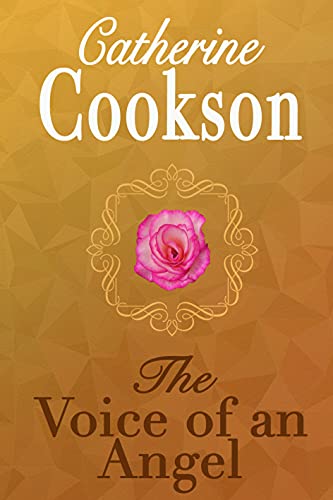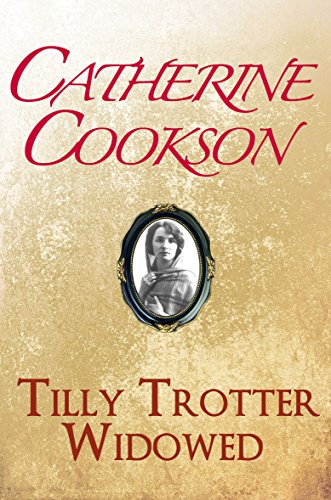
Description
From the Inside Flap knew what was expected of him by the village folk, and especially by the Mason family, whose daughter Daisy he had known all his life.xa0xa0But then, in a single week, his whole world had been turned upside down by a dancer, Stephanie McQueen, who seemed to float across the stage of the Empire Music Hall where she was appearing as The Maltese Angel.xa0xa0To his amazement, the attraction was mutual, and after a whirlwind courtship she agreed to marry him.<br><br>But a scorpion had already begun to emerge from beneath the stone of the local community, who considered that Ward had betrayed their expectations, and had led on and cruelly deserted Daisy.xa0xa0There followed a series of reprisals on his family, one of them serious enough to cause him to exact a terrible revenge; and these events would twist and turn the course of many lives through Ward's own and succeeding generations.<br><br>THE MALTESE ANGEL displays Catherine Cookson at her towering best in this immensely po --This text refers to an out of print or unavailable edition of this title. From Publishers Weekly Attempting to compress a sizable chunk of history (1886-1921) into this saga, Cookson (The Rag Nymph) ends up with a lackluster panorama of an inbred English village lumbering slowly and painfully into the 20th century. When honest, hardworking farmer Ward Gibson forsakes his childhood sweetheart to marry a woman from outside the village, he sets in motion a macabre series of events that will touch the lives of gentry and townsfolk alike. His rejected girlfriend goes mad and murders his wife, but there is no sympathy for Ward, who continues to suffer the hostility of the clannish villagers. When his young daughter is raped by three local drunks, Ward is again ostracized; his unique and terrible revenge only exacerbates an enmity that persists through the next generation. The local gentry, the Ramsmores, are abruptly thrust into this grim morass when young Gerald Ramsmore befriends the harshly treated child born of the rape. The high point of the novel, a stirring and impassioned set piece, concerns Gerald's courageous yet devastating participation in WWI, but it's poorly integrated into the rest of the story. Cookson has created one of the most loathsome villages in English literature here, but the tribulations of its unpalatable melange of aristocrats and commoners are disjointed, sometimes unconvincing and stretched too thin. Literary Guild and Doubleday Book Club alternate. Copyright 1994 Reed Business Information, Inc. --This text refers to an out of print or unavailable edition of this title. From Booklist Hayward Gibson, a nineteenth-century English farmer, finds his Maltese Angel on the stage in Newcastle, falls in love, and marries this dancer who brings beauty, happiness, and, eventually, generations of grief to his life. The woman he marries is not the cause of the sorrow. It is the woman he scorns, a neighboring country girl who had assumed her place would be beside Ward on his freehold farm. This girl, Daisie Mason, is avenged by her brothers, who torment Ward by damaging his farm property. Not content with that, Daisy catapults a stone at Ward's wife, killing her. Left to raise two young daughters, Ward lives only for the youngest, who so resembles her mother. Such preoccupation has chilling effects on the whole family. Cookson, with her popular storytelling skills, brings about a remarkably serendipitous conclusion to a tale laced with heartache, revenge, and madness. Denise Donavin --This text refers to an out of print or unavailable edition of this title. From Library Journal Cookson's (The Rag Nymph, S. & S., 1993) latest historical novel opens promisingly enough with the surprise marriage of farmer Ward Gibson to 18-year-old Stephanie McQueen, a dancer known as "The Maltese Angel." An enraged local girl, Daisy Mason, who considered herself engaged to Ward, opens a campaign of harassment that begins with arson and ends with Stephanie's murder. After Ward has Daisy carted off to a mental ward-for which the villagers condemn him-events continue apace. Cookson employs every plot device available here yet fails to develop a single character. The novel's "happy" ending seems absurd, given the uniformly grim and depressing events that precede it, and those readers determined enough to finish this long tale of (mostly self-inflicted) misery won't care anyway. Not recommended, but sure to be requested by Cookson's many fans. --Elizabeth Mellett, Brookline PL, Mass. Copyright 1994 Reed Business Information, Inc. --This text refers to an out of print or unavailable edition of this title. Catherine Cookson lived in Northumberland, England, the setting of many of her international bestsellers. Born in Tyne Dock, she was the illegitimate daughter of an impoverished woman, Kate, whom she was raised to believe was her older sister. She began to work in the civil service but eventually moved south to Hastings, where she met and married a local grammar school master.Although she was originally acclaimed as a regional writer, in 1968 her novel The Round Tower won the Winifred Holtby Award, her readership quickly spread worldwide, and her many bestselling novels established her as one of the most popular contemporary authors. After receiving an OBE in 1985, Catherine Cookson was made a Dame of the British Empire in 1993. She died shortly before her ninety-second birthday, in June 1998, having completed 104 works. --This text refers to the paperback edition. Read more
Features & Highlights
- Catherine Cookson was at her towering best in this immensely powerful novel which spanned more than three decades, from the 1880s through World War I and beyond, as it told the story of a young man’s fateful decision and the enduring influence it had on future generations.Ward Gibson’s heart and mind were in turmoil as he rode home from Newcastle, across the Tyne, to the prosperous Durham farm he had just inherited from his father. He was already his own assured man, though still only in his twenties. But what about marriage? He knew what was expected of him by the village folk, and especially by the Mason family, whose daughter Daisy he had known all his life. But now in a single week, his world had been turned upside down by a dancer, an ethereal being who seemed to float across the stage of the Empire Music Hall, where she was appearing under the professional name of The Maltese Angel. Night after night he had been to see her, and each time only served to confirm his conviction that this was no passing infatuation but the birth of a devotion that would endure as long as life itself.Ward’s persistence allowed him to meet Stephanie McQueen, or Fanny, as she was known. The attraction was mutual, and after a courtship of only a few weeks they married. But already a scorpion had emerged. To the local community, Ward had betrayed their expectations and cruelly deserted poor Daisy. There followed a series of reprisals on his family, one of them tragic enough for Ward to enact a terrible revenge on the perpetrators. The legacy of these events was a bitter one, at times erupting into terrible violence, that would twist and turn the course of many lives through Ward’s own and succeeding generations.The narrative is rich in characterisation and brilliantly reflects a turbulent historical era’s effects on the aspirations, fears and follies of individuals.




